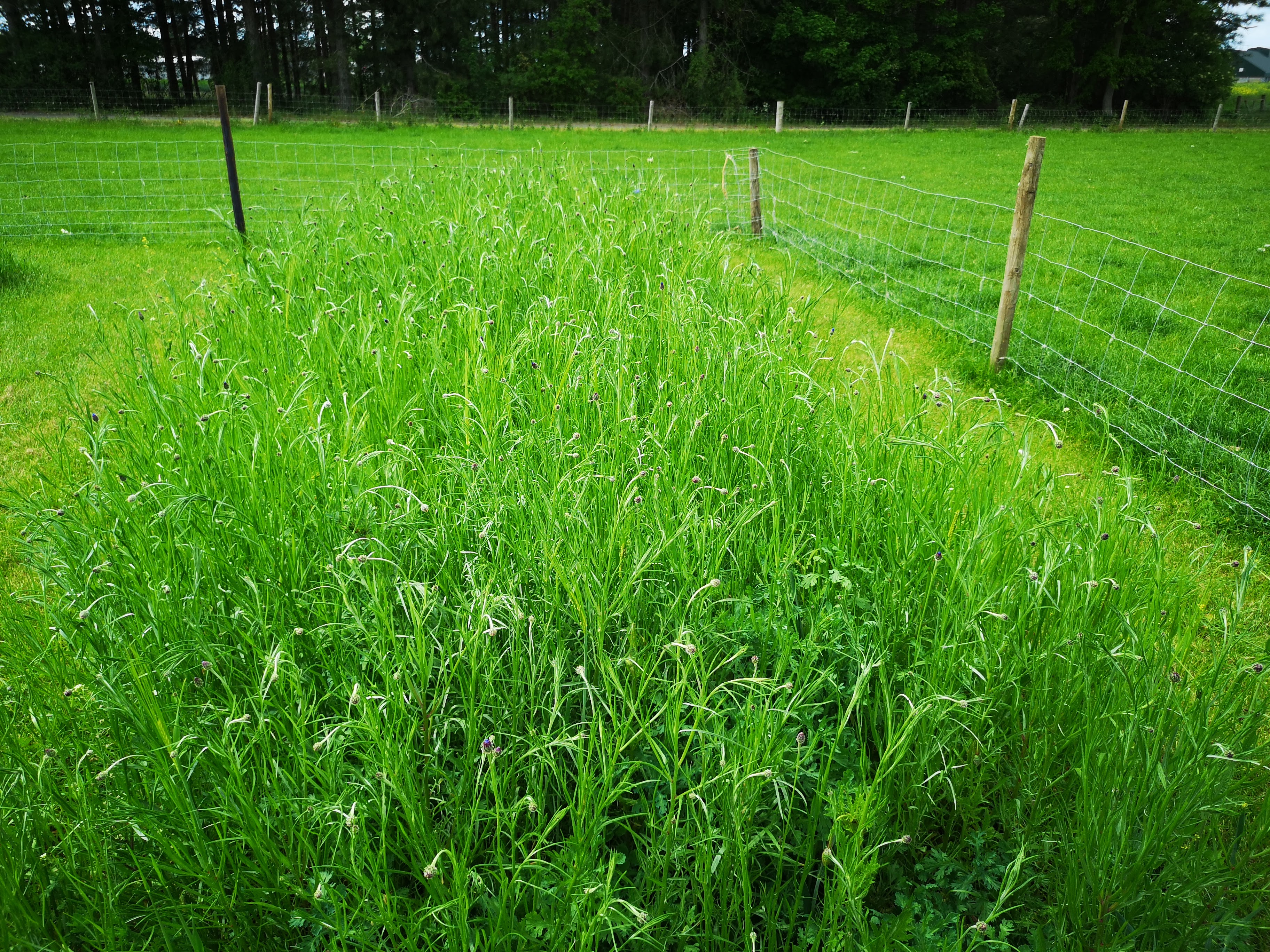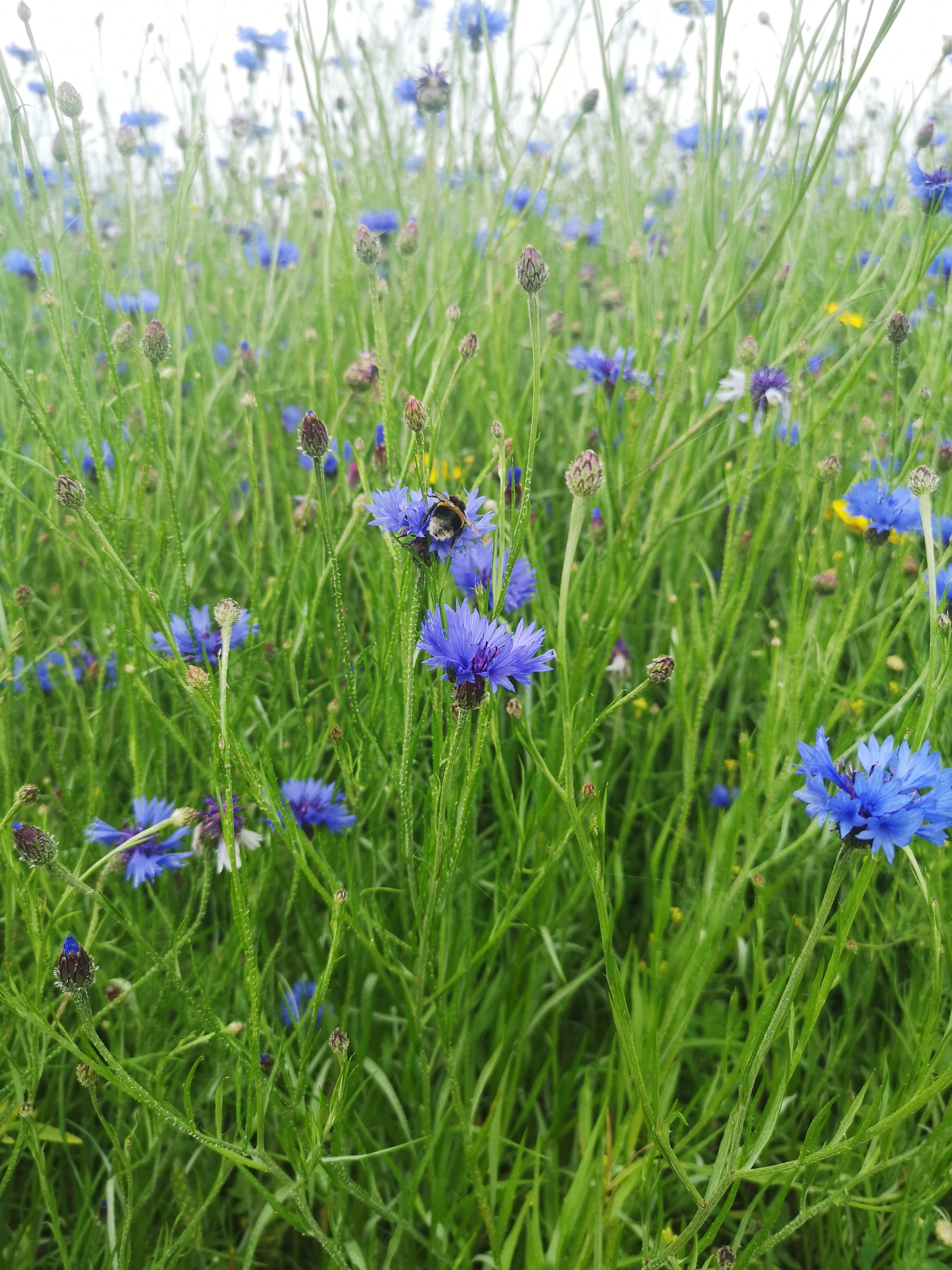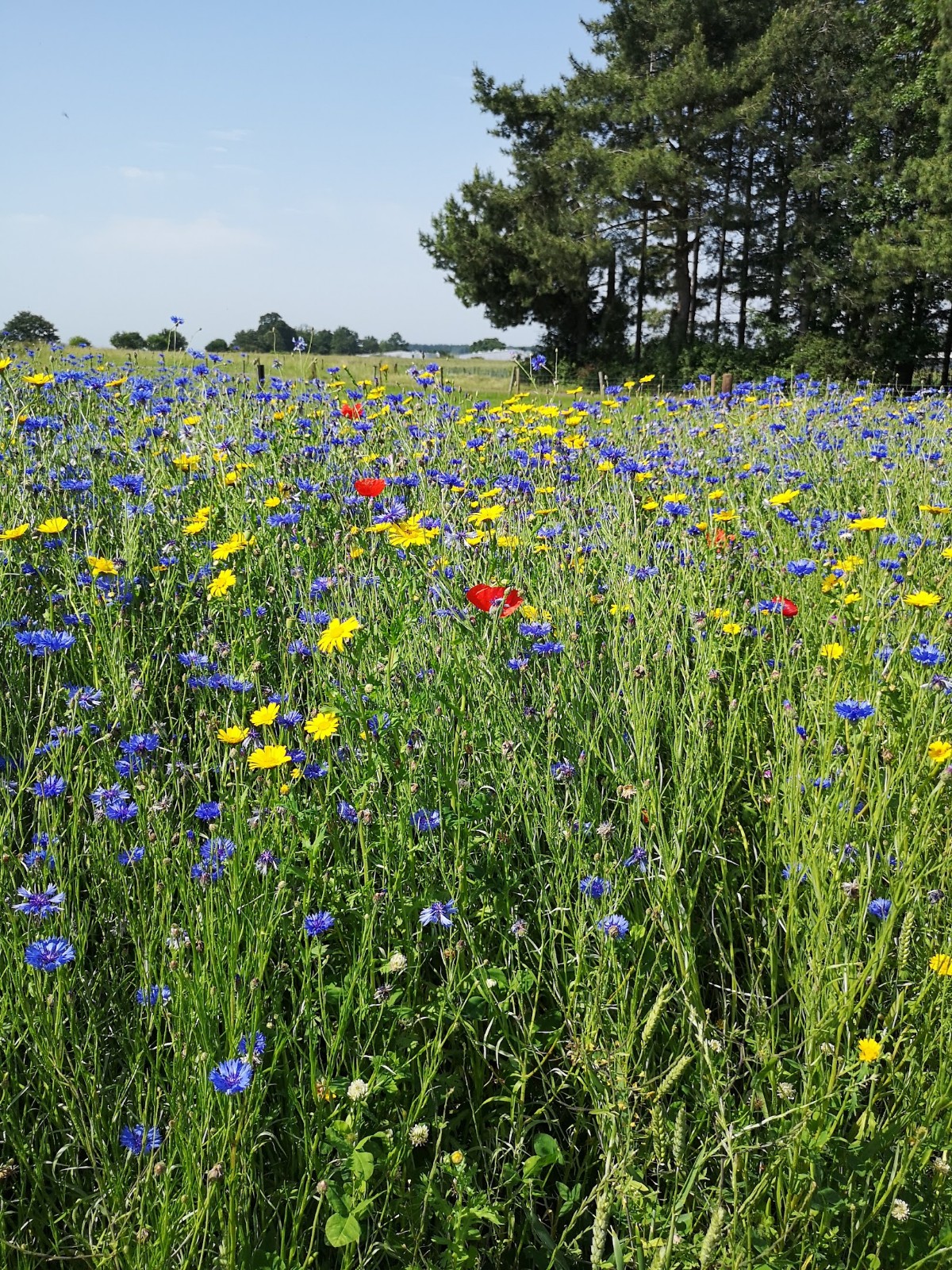If you're after a vibrant,eye catching mixture of wildflowers in a short period of time then the Cornfield Annuals is the mix for you!
This fast growing mix is a particularly popular idea for weddings, I planted this mixture for a friend's wedding a couple of years ago and the results surpassed even my own expectations.
We were quite late in planting and were slightly worried that the window had been missed as the mixture was being sown onto fairly heavy, wet ground. The main mixture was sown at the end of October, but we held a small amount of seed back so we could ‘top up’ in the spring to make sure we had bright, vivid, colours lasting through to the big day in July.
For the seed planted in October a small amount of winter wheat was added to provide some additional cover over the winter, and help ‘hold up’ the mix during the spring as the large fleshy annuals were beginning to grow. The cereal was put in fairly late and just sprinkled on the surface so it was exposed to elements and the birds, some survived and did the job it was meant to.
Seed germination times can vary depending on when the mix was planted, from a spring sowings you should see germination after 7-10 days. It will look fairly weedy to begin with but over time the plants will begin to develop and you will be able to identify the different species coming through. The flowering season of the annuals will vary depending on when the mixture is planted, from an autumn sowing you will begin to see flower buds from May then flowering should begin from early June. A spring sowing will produce a later flowering period from late June onwards and continue on into the autumn.


During June the annuals were beginning to show signs of flowering, the alsike clover was sitting nicely in the bottom giving additional ground cover and helping to prevent weeds from coming through. June was quite dry, however it didn’t seem to affect the flowers, there were a few moments where we considered watering the flowers but in the end we decided it would be too difficult to get water up to the field, the gamble luckily paid off!


Come July the flowers were blooming, and looking stunning. Corn cockle and corn marigold seemed to be the most dominant of the annuals with the odd poppy showing itself, this didn’t seem to matter as the colours were so vibrant and you could hear the bees buzzing from flower to flower.

At the end of the flowering season the wildflowers were cut down, the alsike clover was still there, sat underneath and flowered for a little longer.

The field is used for sheep grazing, once the wildflowers were cut the farmer took advantage of the additional clover in the base of the sward and allowed the sheep to graze it off before overseeding with some permanent grass.
The happy couple enjoyed the day immensely and getting married between the Cornfield Annuals mixture was certainly something different!
https://www.cotswoldseeds.com/articles/668/sowing-and-growing-establishing-cornfield-annuals